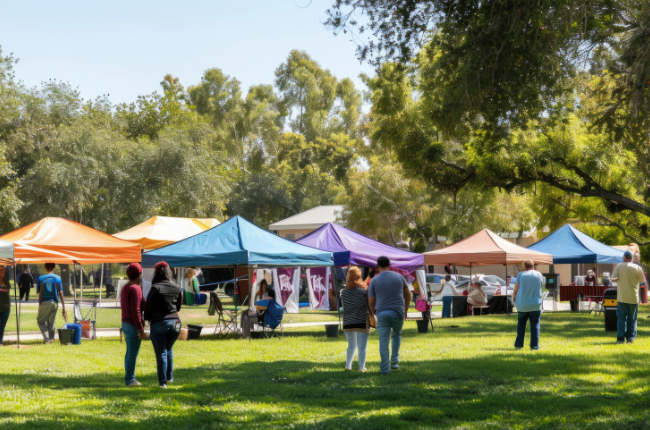From sports tournaments to holiday festivals, public events are the perfect way for communities to share culture and be entertained.
However, these events also pose increased risks to public safety. That’s why councils must take an active role in event planning and execution.
But first: Why public event safety is more important than ever
There are some things in life we simply never forget. Like our child’s first-ever footy goal down at the local oval. Or standing in awe at the spectacular public fireworks display on New Year’s Eve.
Big or small, public community events like these are cherished because they help us create memories. Unfortunately, though, a serious incident can taint those memories.
For example, Brisbane’s Teneriffe Festival is known as the capital’s ‘biggest street party’. But in 2023, it came under fire from residents and businesses who suffered out-of-control noise levels, harassment, alleged vandalism and theft. They were left to clean up the mess – and the council was left to defend its role in the ensuing chaos.
That’s why councils must take all precautions to ensure everyone’s safety and enjoyment before, during and after a public event.
So, here are 4 things you can follow to ensure your next public event is a hazard-free hit.
Determine your council’s role in the event
First, clarify your council’s level of involvement and oversight of the event. This will help you establish your responsibilities during the planning and approvals phase.
It will also help you identify which plans, approvals and assessments you’ll need to complete. These vary from event to event, but typical requirements include:
- An asset condition inspection
- Event management, communications and traffic management plans
- Risk assessment prior to the event
- Liquor and/or gambling licences
- WHS checklists & contingency planning
Consult with all involved parties
Stakeholder consultation is a fundamental part of delivering a safe public event. It ensures all parties understand their roles. And it gives them the chance to provide feedback to improve the event’s planning and execution – before the big day.
At a minimum, you should consult:
- Relevant council managers, staff and committees (including section 355 committees)
- Emergency services
- Any other parties who might be affected by the event, including local community members
Have a comprehensive approach
Even the best-laid plans can come unstuck. So it’s essential to make sure your council’s Event Management Plan & Risk Assessment outlines all potential activities and is reviewed thoroughly. This will ensure that anyone involved in overseeing or reviewing plans is well-informed and can understand the intentions clearly.
It’s also important for Council to know that their current insurance coverage is fit for purpose, including reviewing all relevant insurance policies and any third-party policies that apply to your event. Contact your Account Manager for assistance with insurance.
Risk mitigation and insurance go hand-in-hand. And while your risk assessments are a key part of the mitigation process, also be sure to:
- Review all contract waivers or disclaimers to ensure your council meets the conditions within relevant contracts or agreements
- Keep all records accurate and compliant by double-checking that any advice you’ve received is current, correct – and captured in writing
- Conduct thorough inductions for event staff and third parties to ensure they are well aware of emergency management procedures and how to follow them
One more tip: If your council considers the event a major one, complete the Statewide Mutual Event Risk Assessment Checklist. It’s an extra level of planning that will keep you safe and compliant.
Keeping an eye on things during and after your event
You’ve ticked all the boxes. But the work isn’t over yet.
Despite all the planning and preparation, life is unpredictable. That’s why we suggest you observe emerging risks during the event, like sudden, unseasonable weather. Doing so will further safeguard your community against hazards.
Lastly, remember to review your event once it’s over. Debrief everyone involved to capture feedback while it’s still fresh. This will be invaluable when planning your next public event.
Want to know more? Explore Statewide Mutual’s Events Management Guidance Note. It has checklists, templates and more to help you deliver a public event that everyone will remember – for all the right reasons.

